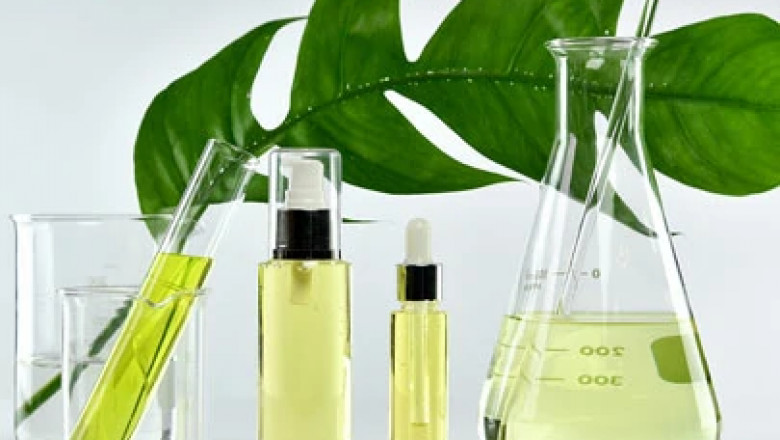views
In recent years, the interest in natural products has surged, as consumers and researchers alike seek effective alternatives to synthetic compounds in healthcare, cosmetics, and wellness. Three significant categories of plant-derived substances—plant essential oils, plant extracts, and plant peptides—have garnered attention for their diverse applications and benefits. This article will explore these three components, highlighting their properties, uses, and the science behind them.
Plant Essential Oils
Plant essential oils are concentrated liquids extracted from various parts of plants, including leaves, flowers, stems, and roots. These oils capture the plant's aroma and distinctive characteristics, making them invaluable in aromatherapy, perfumery, and natural medicine.
Essential oils are composed of volatile compounds that exhibit therapeutic properties. For instance, lavender oil is renowned for its calming effects, while tea tree oil is recognized for its antibacterial and antifungal properties. These oils can be extracted through several methods, such as steam distillation, cold pressing, or solvent extraction.
The versatility of essential oils makes them popular in various applications:
- Aromatherapy: Used for relaxation and stress relief, essential oils can be diffused into the air or applied topically (diluted with carrier oils).
- Cosmetics: They enhance skincare products due to their anti-inflammatory and soothing qualities.
- Natural Remedies: Certain essential oils can provide relief from common ailments like headaches, indigestion, and skin conditions.
Despite their many benefits, it is crucial to use essential oils responsibly, as they may cause adverse reactions if misused or undiluted.
Plant Extracts
Plant extracts are another category that plays a vital role in the natural product landscape. These are the concentrated forms of phytochemicals derived from plants, used in supplements, foods, and cosmetics. Extraction methods such as ethanol extraction, cold pressing, and hydrolysis yield these bioactive compounds, which can include flavonoids, alkaloids, and polyphenols.
The health benefits of plant extracts stem from their high bioactive content. For example:
- Tumeric Extract (Curcumin): Known for its potent anti-inflammatory and antioxidant properties, turmeric extract has gained popularity for its potential role in chronic disease prevention.
- Ginseng Extract: Often used in traditional medicine, ginseng is thought to boost energy, reduce stress, and enhance cognitive function.
In skincare, plant extracts like aloe vera and green tea are commonly used for their soothing and protective effects against environmental stressors.
Plant Peptides
Peptides, short chains of amino acids, play a crucial role in various biological processes. Although traditionally associated with animal proteins, researchers have discovered that plant peptides also offer remarkable health and cosmetic benefits. These peptides can be extracted from various plant sources, including grains, legumes, and seeds.
Plant peptides are gaining recognition for their regulatory functions in the body, including:
- Antioxidant Activity: Many plant peptides possess the ability to scavenge free radicals, protecting cells from oxidative damage.
- Skin Health: Peptides derived from plants, like rice or soy, are increasingly used in skincare formulations. They can enhance collagen production, improve skin elasticity, and reduce the appearance of wrinkles.
Additionally, some plant peptides may support muscle repair and growth, making them popular in sports nutrition.
Integration of Essential Oils, Extracts, and Peptides
The growing integration of plant essential oils, extracts, and peptides in various products reflects a holistic approach to health and beauty. These components work synergistically, enhancing each other's effects. For example, a skincare product may incorporate essential oils for their aromatic and antimicrobial properties, plant extracts for their soothing effects, and peptides for skin rejuvenation. This multifaceted approach not only enhances product efficacy but also provides consumers with natural alternatives to synthetic ingredients.
Conclusion
The rise in popularity of plant essential oils, extracts, and peptides highlights the shift towards natural, effective solutions in health and wellness. As scientific research continues to unravel the complexities of these plant-derived substances, we can expect to see their applications expand across various industries. Understanding and harnessing the power of these natural compounds may lead to innovative products that support human health and well-being.






















Comments
0 comment